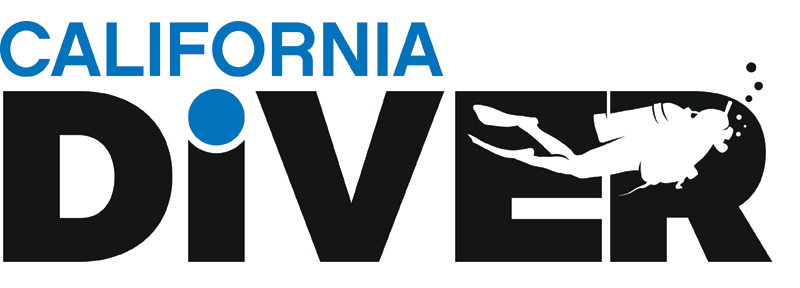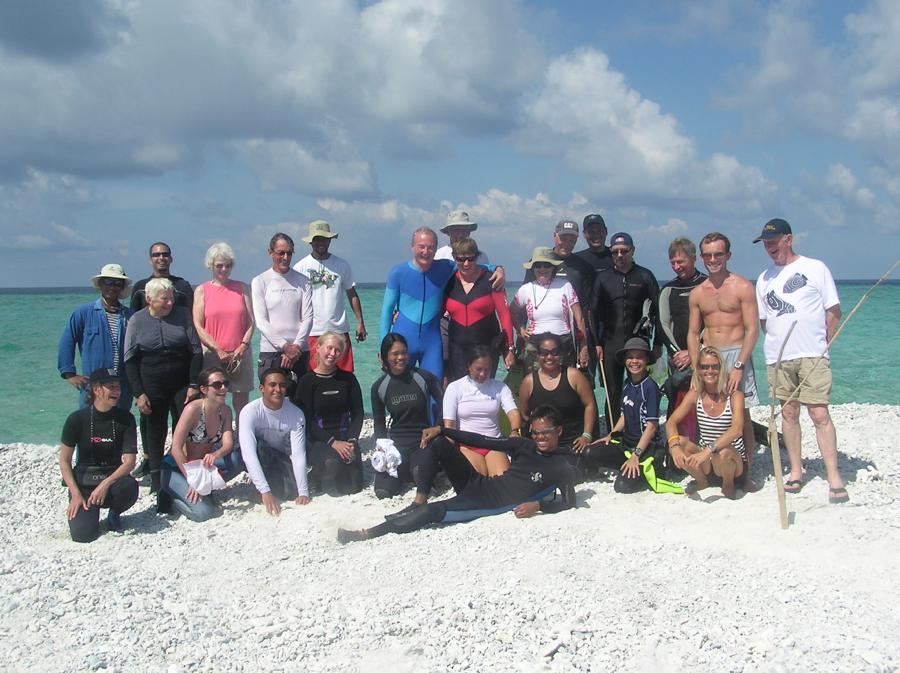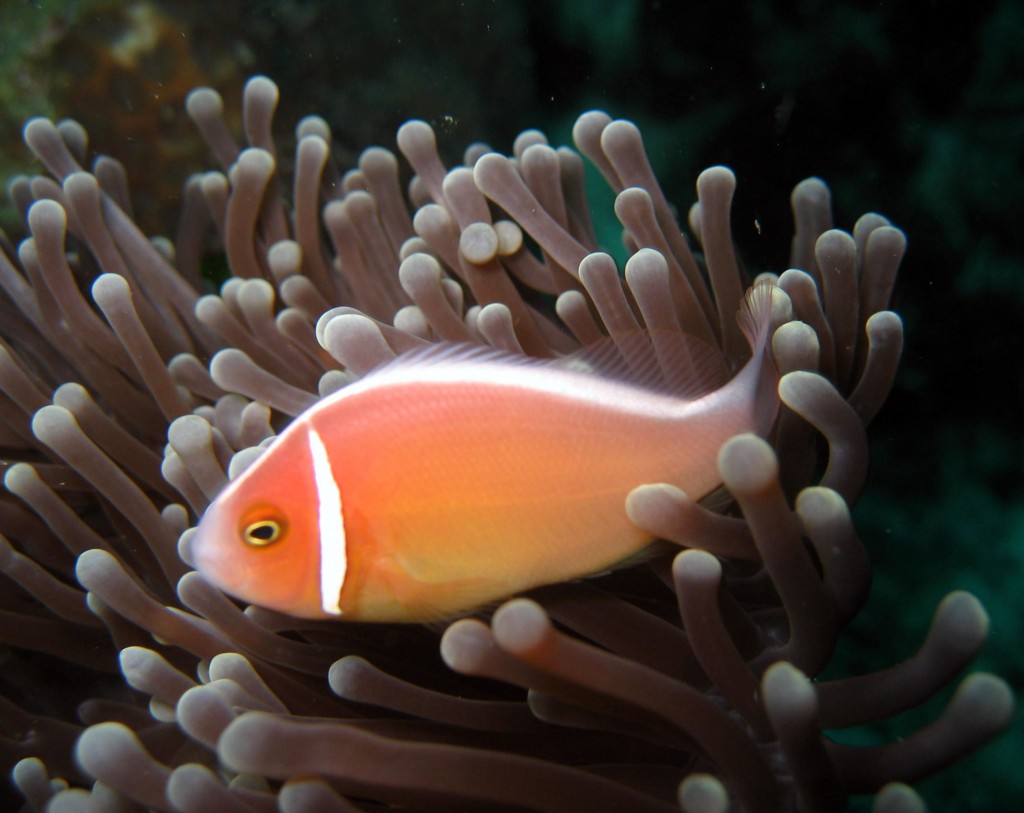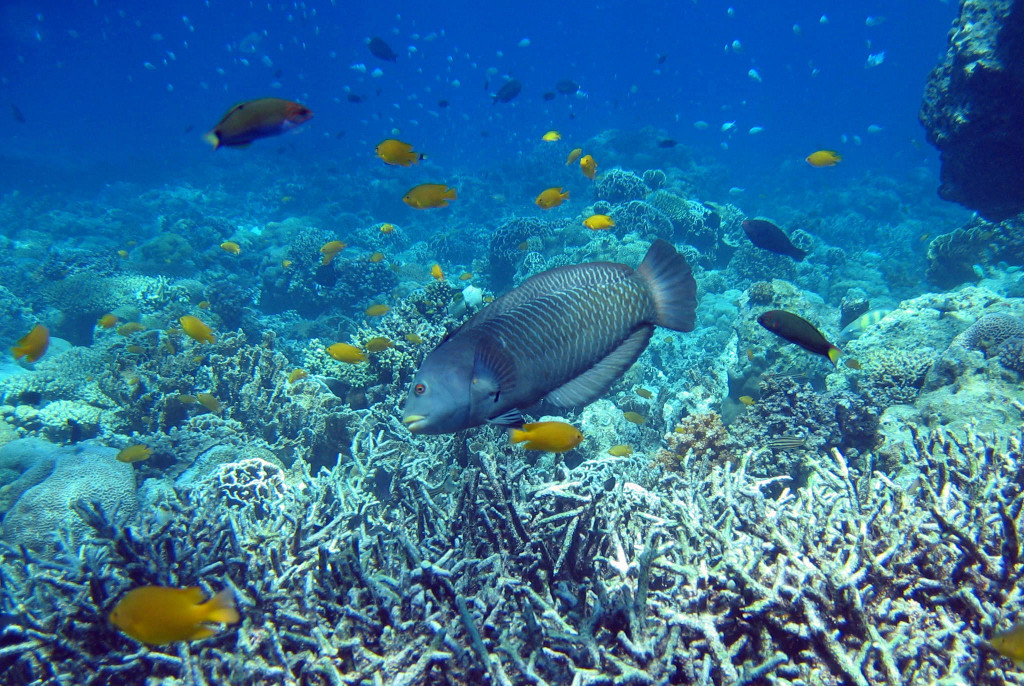Divers are in a unique position to notice changes in underwater environments if they visit the same sites frequently enough. There may be fluctuations in the numbers of fish or perhaps changes in the variety and quality of habitats such as coral reefs. We take notice of these changes but are often left wondering what we can do to help improve the situations we observe.
If you have ever desired to join a team of marine scientists to assess underwater environments, perhaps an innovative environmental organization in the Philippines could offer you an exceptional and rewarding adventure for your next dive trip.
Words and photos by Ethan Y. Lucas
Coastal Conservation and Education Foundation
Dr. Alan White is the founder and President of the Coastal Conservation and Education Foundation, Inc. (CCEF), an innovative non-profit organization that works at the community level to implement best practices in coastal zone management. Since the 1980’s, Dr. Alan White and his wife Vangie White, the organization’s co-founder and Secretary, have been guiding divers from around the world to monitor the changing conditions of the coral reefs in the Philippines. This unique project of CCEF is called the “Saving Philippine Reefs” expedition, or SPR for short.
Endowed with some of the most spectacular underwater vistas in the world, Philippine coral reefs provide a home to many of the largest and smallest reef inhabitants that divers desire to observe. Everything from whale sharks to pygmy seahorses can be found in these fertile waters. Not only are coral reefs beautiful to observe, they also act as buffers to shoreline communities during storms, generate valuable income for local economies and provide a critical source of protein for the millions of Filipino citizens who live in coastal areas.
It is no secret that coral reefs in the Philippines and around the world are under threat from a variety of pressures. Reefs are battling a changing global climate, an altered ocean chemistry and multiple impacts from human activities taking place on the land and in the water. Without healthy and functioning coral reef ecosystems, the Philippines and the other countries of the Coral Triangle region would face an unimaginable crisis. These are but a few of the many reasons CCEF is working so hard to protect the Philippine coastal environment.
CCEF maintains one of the oldest, continuous datasets of coral reef observations in the country and this information is used to enhance local management efforts to protect these reefs. In many instances this data has been used to establish marine protected areas (MPAs) that are cared for and guarded by the local communities themselves. In recent years many of these communities have begun to experience again the benefits that a restored, healthy and protected coral reef ecosystem can provide.
Saving Philippine Reefs
How can you help out? Even if you do not have a degree in marine biology, you are welcome to join a Saving Philippine Reefs expedition hosted by CCEF. Divers of all experience levels can participate in the SPR data collection activities and acquire a new underwater skill set while having fun at the same time. Depending on the area to be monitored, SPR expeditions are either land or live aboard based and average eight days in length, including travel. SPR expedition sites include the world famous Tubbataha Reefs Natural Park (a UNESCO world heritage site), the Bohol Marine Triangle, Cebu Island and the renowned diving area of Anilao, Batangas. Each expedition site is monitored every four years, enough time for measureable changes to occur on the reefs.
Upon arrival in country, all guests are trained by the knowledgeable CCEF staff to identify basic coral shapes (morphologies), how to deploy a transect line (used to measure specific distances underwater) and how to use specially designed slate boards to record underwater observations. A practice dive is conducted before the start of the official expedition, providing an opportunity for everyone to practice these new underwater tasks and to increase comfort levels. While the majority of observations are recorded underwater while on scuba, observations are also recorded at shallower depths using snorkel gear in between morning and afternoon dives.
The typical scientific dive routine consists of a morning dive after breakfast, a snorkel during the surface interval after the first dive, lunch, an afternoon dive and dinner. Non-scientific night dives are offered for those who desire observe the underwater nightlife. Dr. White and the CCEF staff understand that guests want to maximize the amount of time spent underwater, so upon completion of the data collection phase of each dive, pre-determined buddy teams pair up to explore and take photos for the remainder of their tanks. Many guests make it a point to participate in this uniquely fulfilling and enriching dive experience year after year.
The Results
What happens to all of the data that is collected during the course of an SPR expedition? Each evening, after the day’s diving activities have been successfully completed, guests transcribe the data from their slate boards to the CCEF digital server via laptop computer. With the data safely stored in the CCEF computer system, CCEF staff will compile this information and add it to the time series of data that has been collected during previous SPR expeditions. Upon their return to the office in Cebu City, CCEF staff will begin to crunch the numbers and analyze the results to figure out how the coral reef ecosystem has changed since the last monitoring session.
Once the in-depth analysis has been finalized, an official CCEF report will be authored and the results turned over and interpreted to all local stakeholders involved in the management of the survey site. These results will be used to provide strong guidance for local coral reef managers on how to best manage activities taking place within their coral reef management areas. Guidance provided by CCEF has been instrumental in improving the management of all SPR sites, including the Tubbataha Reefs Natural Park, the crown jewel of the Philippine diving experience. The benefits of improved management are not just retained at the monitoring site. Improved management at multiple sites can contribute to increased coral reef resilience at scales beyond those of political jurisdictions.
A copy of this robust scientific report will be given to all guests for a job well done, but this is not the only reward divers receive. The overall experience of taking part in a successful conservation effort is also a tremendous reward and a treasure-trove of colorful memories and pictures will be taken home by each guest, memories that detail new friendships forged, vivid underwater experiences captured and warm interactions experienced with local communities. Stories will be recounted to friends and family members regarding the legendary Filipino hospitality, delicious local foods tasted and hilarious interactions with the charismatic CCEF staff. Participating in a CCEF Saving Philippine Reefs expedition just might be the pinnacle of your diving adventures.
For More Information
To receive information on when, where and how to participate in the next Saving Philippine Reefs expedition, please contact Vangie White by either phone or email. For a summary of the April 2013 SPR Expedition, please click here.
Email: vangiewhite@hawaiiantel.net
Phone: 808-262-1091
Author Bio
Ethan Y. Lucas became involved with CCEF and SPR in 2006 as a U.S. Peace Corps Volunteer in Cebu, Philippines. During his three years in the Philippines and for 4 years afterwards Ethan served as Divemaster for the SPR Expeditions. Ethan is a NAUI Instructor (#39484) currently living in Monterey, CA and working for the sustainable seafood non-government organization FishWise, based out of Santa Cruz, CA



